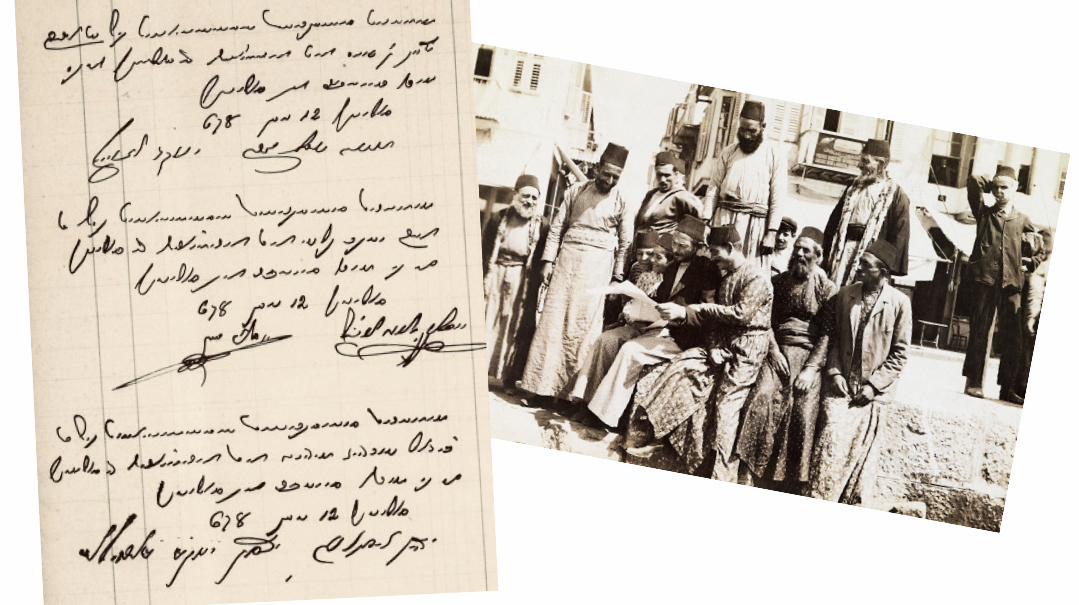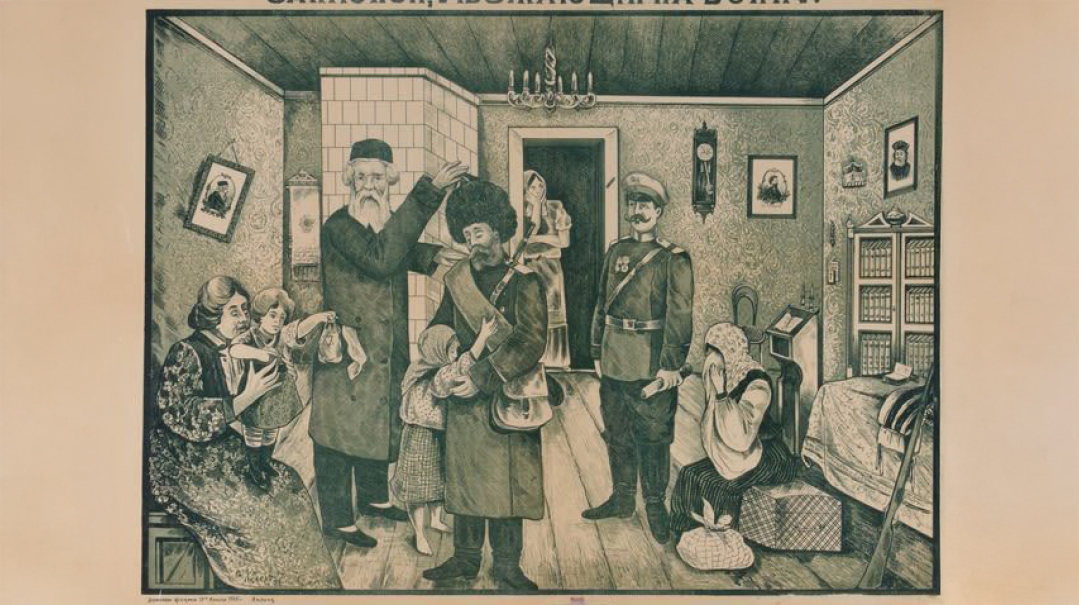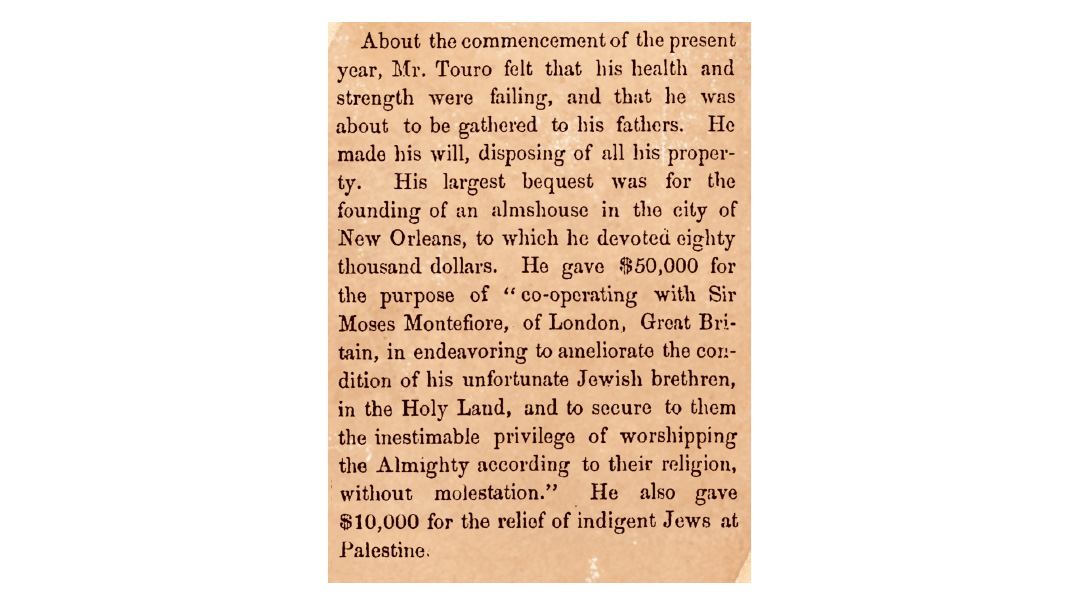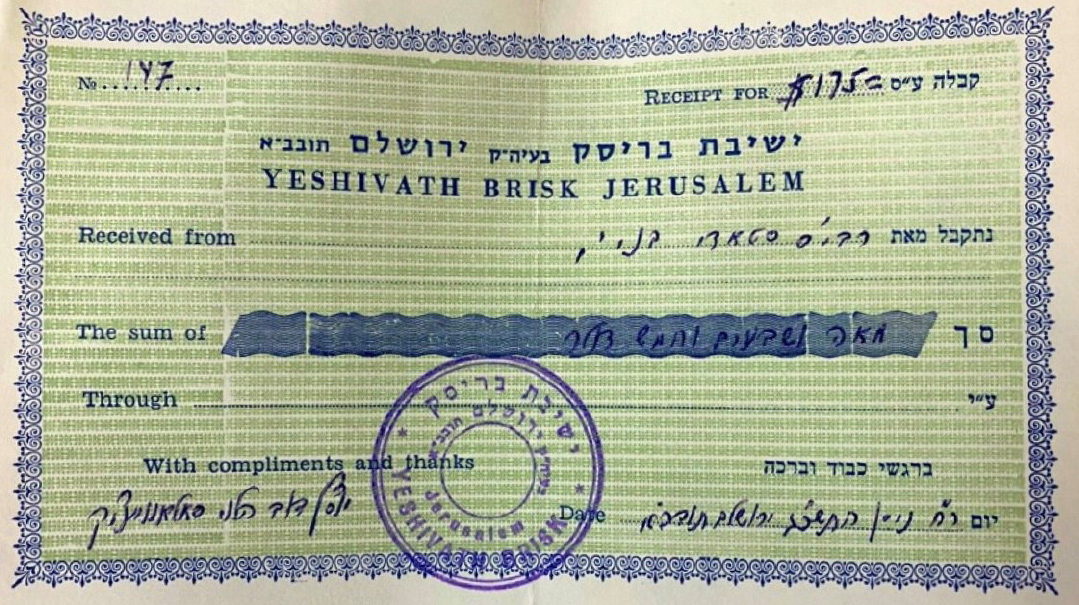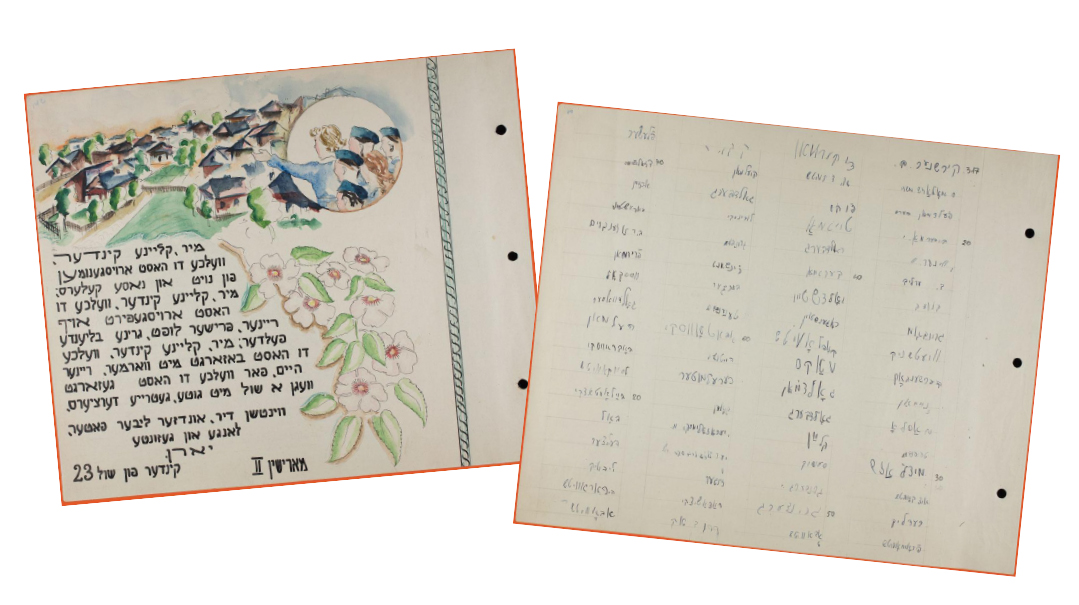The Krakover Illui
| January 14, 2025This Thursday, the 16th of Teves, marks the 23rd yahrtzeit of Rav Chaim Kreiswirth
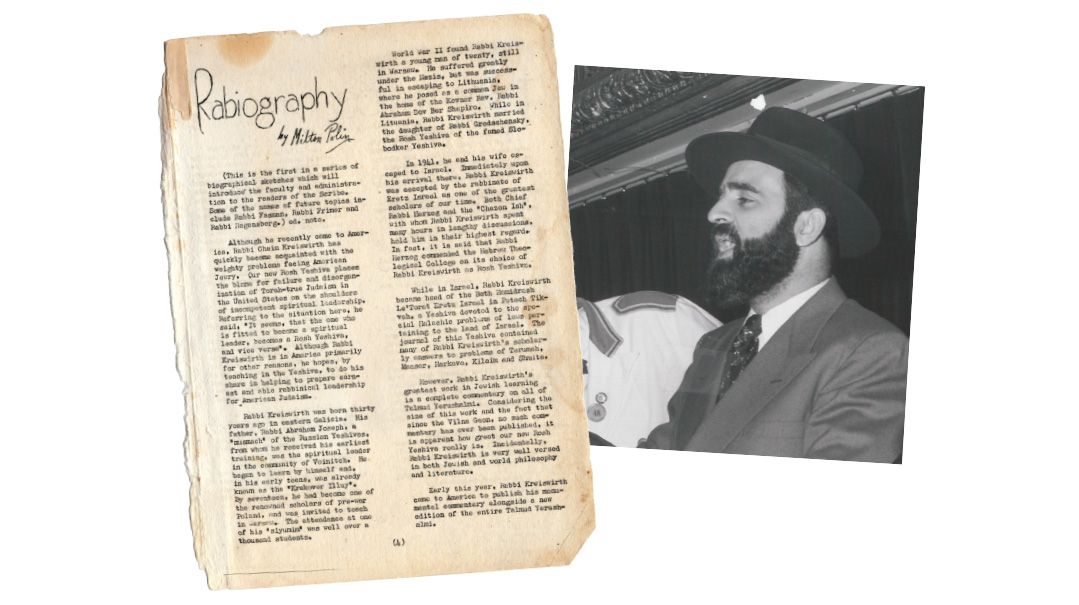
Title: The Krakover Illui
Location: Chicago
Document: The HTC Scribe
Time: 1949
Adar 1940
Among the gedolei Torah here [in Lithuania] from those who were exiled from the land of Poland is a young 22-year-old individual who is a wondrous hafleh va’fele illui. He is a remarkable genuine gaon who is truly conversant in all of Shas with Tosafos and knows the majority of halachos in the Rambam by heart. In addition, he is well-versed in all of the rest of the seforim of the Rishonim and Acharonim.
His knowledge shows depth and clear understanding, and he is an innovator who articulates original and wondrous chiddushim. He is also a pleasant and charming personality, moderate, well-mannered, and modest, and possessing many fine qualities… A young man on one hand, and a true gaon on the other….
I’m not the sort to exaggerate at all, and I didn’t add any superlatives. If anything, I wasn’t effusive enough in my praise of him.
— The Kovno Rav, Rav Avraham Dovber Kahana-Shapiro, author of Devar Avraham
Born in 1920 in Wojnicz, Poland, Rav Chaim Kreiswirth grew up in a distinguished Galician rabbinic family. His father, Rav Avraham Yosef, served as the town’s rav, and young Chaim was immersed in Torah scholarship from an early age. By his teens, he was a prized student at the prestigious Yeshivas Chachmei Lublin, where his brilliance turned heads. At the age of just 18, he was already teaching Torah in Warsaw, a prodigy destined for greatness.
With the outbreak of war, Rav Chaim fled to Vilna, where his reputation as “the Krakover Illui” began to spread. The nickname, though geographically inaccurate — he had never lived in Krakow — became synonymous with his towering intellect and sharp analytical mind. Tragically, his parents and four siblings remained behind in Poland, where they were murdered in the Treblinka gas chambers. Rav Chaim was the sole survivor, carrying the weight of their memory as he forged ahead.
In Vilna, the young Polish genius caught the attention of Torah giants. Rav Chaim Ozer Grodzenski, Rav Chanoch Henoch Eiges (the Marcheshes), and the Devar Avraham of Kovno were astonished by his encyclopedic knowledge and refreshing humility. Rav Chaim wasn’t merely a scholar; he was a delight to engage in Torah conversation, a Galicianer who could stand toe-to-toe with the greatest minds of Lithuania.
One such admirer was Rav Avraham Grodzinski, the Mashgiach of Slabodka Yeshivah, who considered Rav Chaim a potential match for his daughter Sarah. Before proceeding with the shidduch, Rav Avraham sought the counsel of the Devar Avraham. The Kovno Rav’s endorsement was effusive: “In addition to being an illui, Chaim is also a baal middos.”
His proof was characteristically incisive. “I recently sent him divrei Torah,” the Devar Avraham explained, “and instead of finding flaws or tearing the chiddush apart — as is the custom of many lamdanim — he added several proofs to strengthen it. This young illui takes pride in the divrei Torah and chiddushim of others, a middah as rare as it is precious.”
The young couple married and miraculously made it to Eretz Yisrael shortly thereafter. Her father and most of her siblings were murdered by the Nazis and their Lithuanian collaborators in the Kovno Ghetto, though some of her siblings survived and made it to Israel after the war.
In 1947 he was hired as the rosh yeshivah of Hebrew Theological College–Beis HaMidrash L’Torah in Chicago, which was experiencing a golden age. For next seven years, Rav Kreiswirth, with his Torah genius and magnetic personality, raised a generation of talmidim, many of whom became prominent rabbinical figures and Torah teachers in the decades to come.
Rav Kreiswirth’s impact in Chicago is best captured by one of his closest students of that era, Rabbi Berel Wein, who recalled those years with obvious nostalgia:
Rabbi [Chaim] Kreiswirth, the rosh yeshivah, fostered my commitment to Torah study. In his early thirties, handsome — with a small, French-style, trimmed beard, and dressed in bright, modern suits and colorful ties — he was charismatic and dynamic.
He was also a Talmudic genius, possessed of a photographic memory, who inspired devotion and emulation among his students. He was a world-class orator as well, and from listening to him, I gained many insights into the art of public speaking and the use of Talmudic anecdotes in lectures and sermons.
Rabbi Kreiswirth became my mentor, trusted advisor, and role model. He played a constant, significant role in my life until his death. In my opinion, his interpersonal skills and innate abilities influenced his students more than his Talmudic lectures, in which his soaring genius — expressed in a Polish Yiddish dialect — was often over our heads. A powerful personality, he shaped the lives and ideals of his students. He demanded that we help rebuild the Jewish world — especially the Torah world — after the terrible events of World War II.
In 1954 the Machzikei Hadass community of Antwerp was seeking to fill the rabbinical position, which had remained vacant since the martyrdom of Rav Mordechai Rottenberg in the Holocaust a decade earlier. Upon the recommendation of Rav Shmuel Greineman and Rav Yaakov Kamenetsky (who was Rav Kreiswirth’s uncle through marriage, as Rav Yaakov and Rav Avraham Grodzinski had married sisters), they invited Rav Kreiswirth to fill the position.
Rav Kreiswirth visited the community, saw great potential in spreading Torah and Yiddishkeit in Antwerp, and was strongly considering accepting the invitation. When his students at the yeshivah in Chicago found out, they were horrified, and quickly penned a sharply worded letter to the overseers of the Antwerp community, imploring them not to take their beloved rebbi away from Chicago.
Chicago, January, 16 Teves, 1954
To the community leader Reb Yitzchak Freilach, much shalom and brachah.
In the name of the talmidim of the great gaon, our rebbi, Rav Chaim Kreiswirth shlita, rosh yeshivah of Beis HaMidrash L’Torah in Chicago, we would like to strongly express our unequivocal opinion against the attempts of our brethren within the Antwerp Jewish community to invite our great and honored rabbi to stand at the helm of the Antwerp community.
We will not cease in our tireless efforts to request and even to beg of our great rebbi, the pillar of Torah of the American Midwest and beyond, and who sustains and guides us in all of our ways, to continue his great work and blessed and holy accomplishments in our yeshivah, in order to strengthen Torah and tradition in an environment that is thirsty for the word of Hashem.
We greatly hope that the communal leaders of Antwerp appreciate the great love and close relationship we enjoy with our great rebbi Rav Kreiswirth, and our souls are collectively bound with his.
And it is for the honor of Torah and those who study it and value it that we hope our out-of-the-ordinary efforts in this regard can be forgiven.
Yours, with feelings of friendship and peace, and with the blessings of the Torah,
Ovadiah Yudkovsky
Dov Berel Wein
Tzvi Aryeh Rottman
In the name of the talmidim of Beis HaMidrash L’Torah of Chicago, Illinois
To no avail. Rav Chaim Kreiswirth moved to Belgium, and remained the rav of Machzikei Hadass Antwerp until his passing 48 years later in 2001.
He never rested on his laurels in Antwerp, however. He continued to visit the United States on an almost annual basis, connecting with former talmidim and guiding them, and sometimes spurring them to further their careers in harbatzas Torah.
He also invested time and resources in building Torah infrastructure in Israel, eventually residing part time in Jerusalem’s Har Nof neighborhood in his later years. Through his close student Rav Aryeh Rottman, he was involved in the establishment and growth of the Mercaz HaTorah yeshivah in Talpiot.
In Har Nof, he was sometimes seen having animated Torah discussions with Rav Ovadiah Yosef, the two great Torah geniuses citing long passages from Shas, Rishonim, and poskim by heart to each other. Rav Benzion Abba Shaul related to his students that he only recited the blessing of shechalak mei’chochmaso, which is recited only on the greatest of Torah sages, on three individuals — the Steipler, the Satmar Rav, and Rav Chaim Kreiswirth.
Wonder of Yerushalayim
During his sojourn in Jerusalem, Rav Chaim Kreiswirth resumed his ways of developing close relationships with leading Torah scholars of the city, who in turn were amazed at his vast knowledge.
A story is told from that period of a conversation he had with Rav Isser Zalman Meltzer and the Mirrer rosh yeshivah, Rav Leizer Yudel Finkel, both decades his senior. Rav Kreiswirth mentioned that a certain Tosafos was a “pele” — although in the course of the conversation, Rav Kreiswirth had cited that Tosafos and many others verbatim as was his custom. Rav Leizer Yudel interjected, “The Tosafos isn’t a pele. The fact that you’re quoting everything by heart is a pele!”
Father of Orphans
One of Rav Kreiswirth’s many objectives in his travels was his dedication to supporting the poor, orphans, widows, and other unfortunate individuals. His personal fundraising for thousands of impoverished families and individuals occupied much of his time. He was once asked why he never recorded memoirs of his experiences with the great Torah personalities he was privileged to be acquainted with in his youth. He emphatically replied that he preferred to utilize the time it would take to write those stories to further fundraising efforts on behalf of additional widows and orphans.
This Thursday, the 16th of Teves, marks the 23rd yahrtzeit of Rav Chaim Kreiswirth.
(Originally featured in Mishpacha, Issue 1045)
Oops! We could not locate your form.

